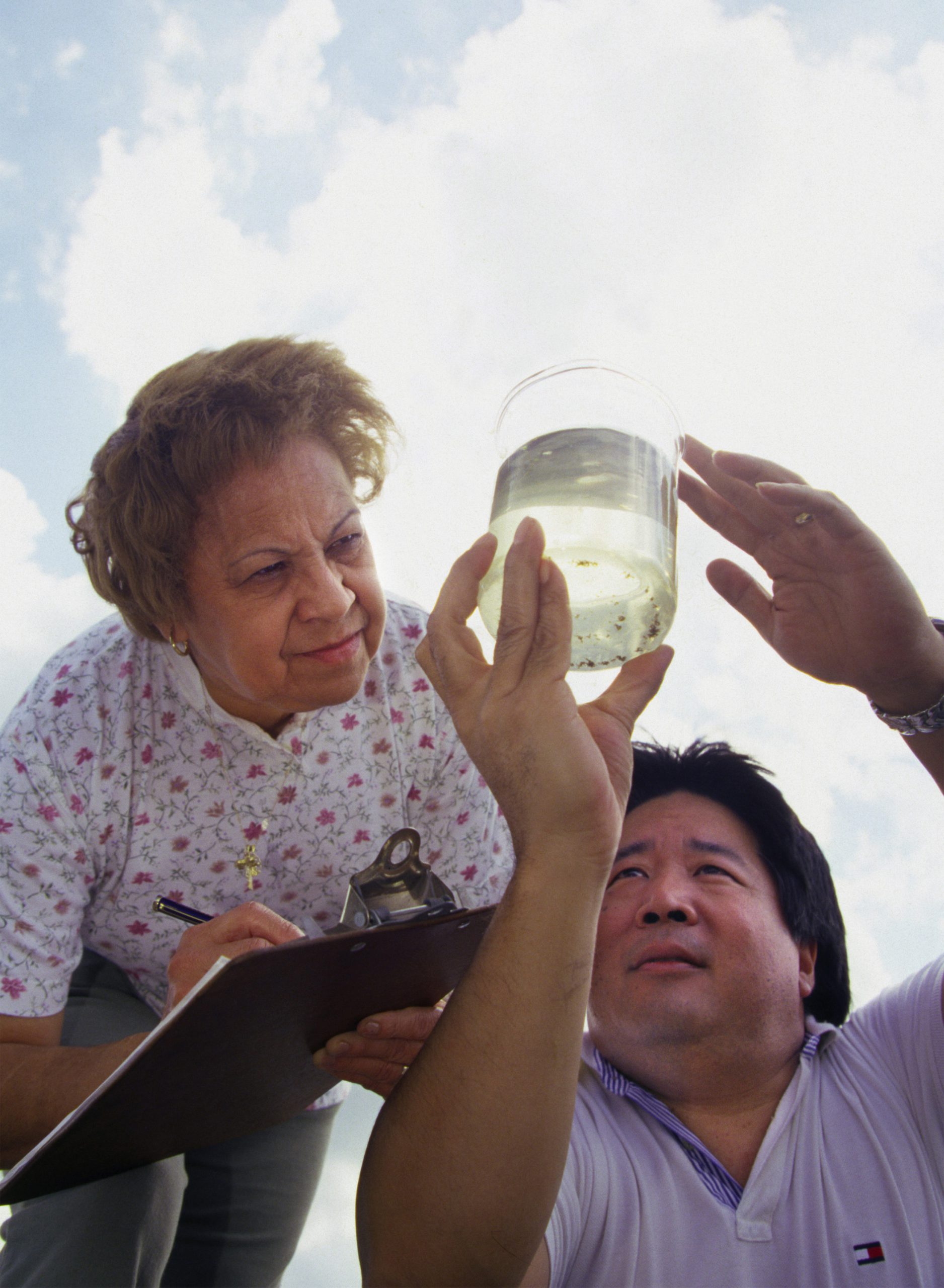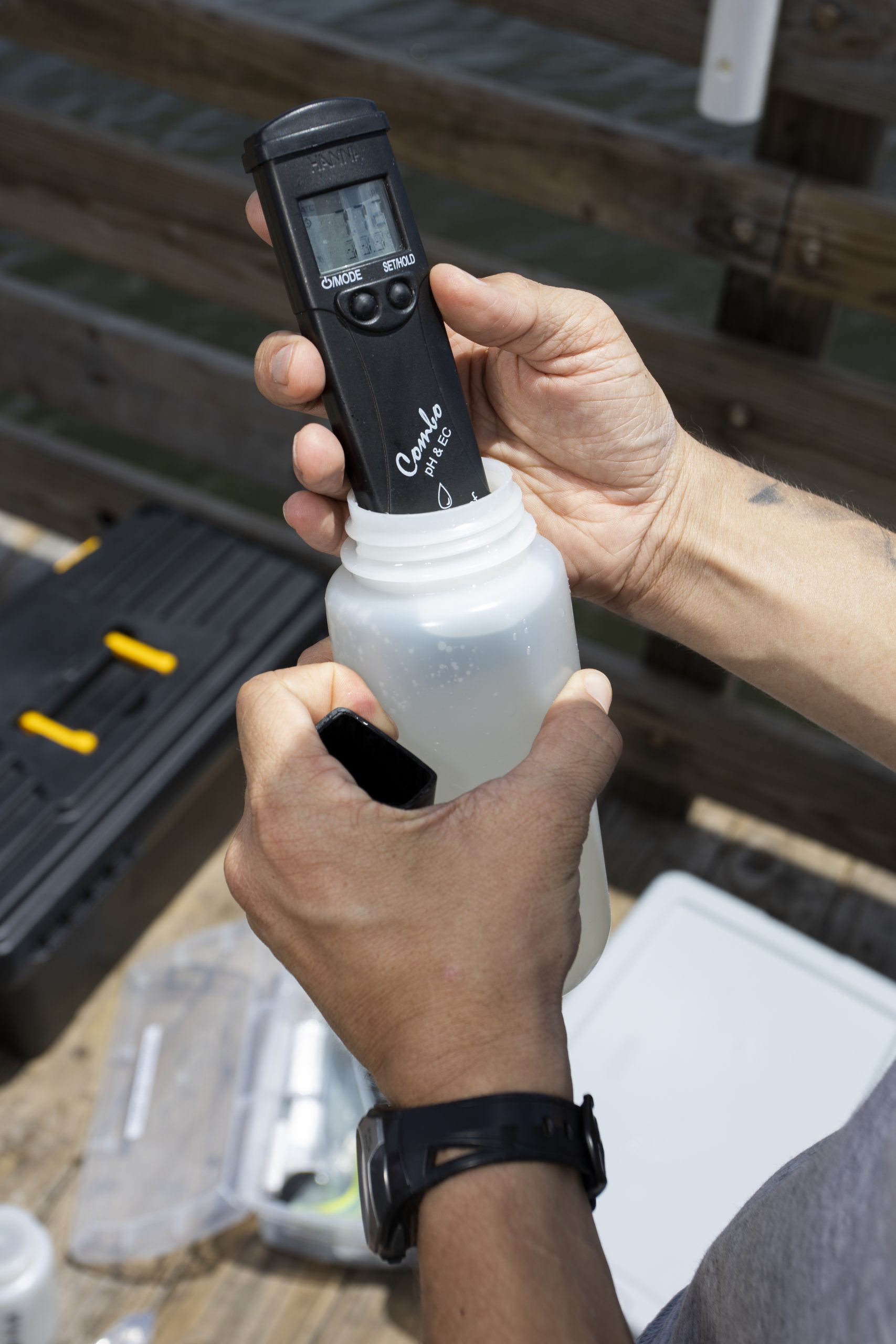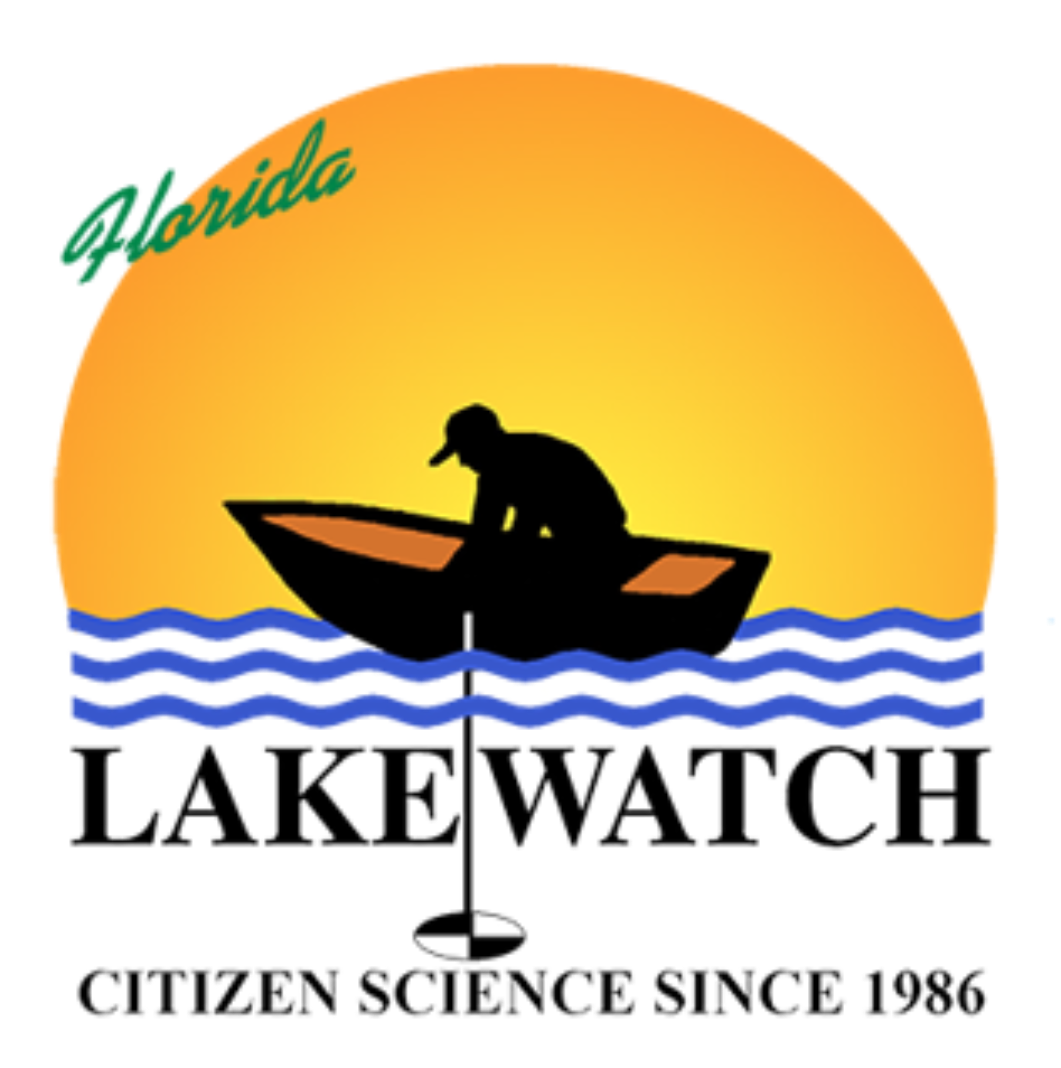
Water Quality is a top priority for Sarasota County and the University of Florida. Because of this, residents frequently contact the Extension Office with water quality concerns, often requesting a “water test” as the first course of action. Water quality is dynamic, and unfortunately there is no singular test to determine if water is of “good or bad” quality. Additionally, not all water quality concerns require laboratory testing. Many issues can be addressed through technical assistance, behavior change, and adoption of Best Management Practices.
Is Water Testing Right For You?
The first step in deciding if water quality testing is appropriate for you is to identify the type of water presenting the concern. We experience water in many forms, each with its own nuances. Is your question about drinking water, reclaimed water, or irrigation? Or maybe you are calling about your private well or stormwater pond. The next step is to identify the concern itself. Common questions often involve odor, taste, and aesthetics. Some residents inquire about testing simply out of curiosity and interest. In order to test water, we must first know what to test for. TV crime shows have led many to believe that a lab can pass a sample through a machine, read a list of everything contained within the sample, and solve the mystery. However, such instruments are the stuff of creative television. Water quality testing in real life is much different. Testing is helpful in proving a theory, monitoring set quality parameters, or screening potable water for harmful bacteria.
Sarasota County Drinking Water
Sarasota County’s Drinking water is tested daily for safety and quality. In fact, some parameters are measured several times throughout the day. Water quality samples are taken at multiples stages of the

water treatment process. Samples for analysis are also collected throughout the water distribution system. In addition to chemical analysis, water is screened daily for coliform bacteria and E. coli. The Florida Department of Environmental Protection and the US Environmental Protection Agency set safety and quality standards for drinking water. Sarasota County’s drinking water meets or exceeds these standards, and has even won several Best Taste awards from the American Water Works Association. The Consumer Confidence Report summarizes water quality data from the previous year. The Consumer Confidence Report is published annually and is available to the public HERE.
To learn more about Sarasota County’s drinking water CLICK HERE.
UF/IFAS Extension Sarasota County regularly offers presentation about Sarasota County’s drinking water. CLICK HERE to check for upcoming offerings of Drink Local: What’s Really In Your Tap Water?.
Private Wells
Unlike municipally supplied drinking water, private wells are not monitored by local government for safety and quality. It is the responsibility of the homeowner to test their private well for coliform bacteria and E. coli annually. Testing is available through the Florida Department of Health Sarasota County. Locations are available in Sarasota and Venice. If your well has sustained damage or flooding due to a hurricane, you may be eligible for free testing supplies through the Florida Department of Health Sarasota County.
The University of Florida’s UF/IFAS Extension Soil Testing Laboratory (ESTL) offers analytical testing of well water for both household and irrigation use. ESTL will analyze your well water for common chemical parameters including iron, manganese, Electrical Conductivity, sodium and chloride, and pH level. The ESTL does not screen for bacteria. You can learn more about well water testing through UF’s ESTL HERE. Samples sent to ESTL must be accompanied by a completed Water Test Form.
Ponds and Lakes
Communities with stormwater ponds are encouraged to work with a pond management or consulting company of their choosing. A reputable pond management company should have the ability to perform various water quality tests and use the results of such tests to inform their management decisions. The results of these tests should also be available to the  community’s board upon request.
community’s board upon request.
Residents who are interested in regular ongoing monitoring of water quality parameters in their pond or lake should consider volunteering with Florida LAKEWATCH. LAKEWATCH is a citizen science volunteer lake monitoring program. Volunteers choose a lake of interest and commit to one sample day per month. Monthly sampling includes Secchi depth (water clarity) and water depth readings, Chlorophyll filtration to measure algae levels, and collection of water samples for nutrient analysis. Samples are dropped off monthly at your local dropoff location (6700 Clark Rd, Sarasota) and analyzed quarterly by LAKEWATCH staff at the University of Florida. Volunteers are provided with free training and are supplied with sampling equipment. Volunteers also gain access to lake management experts and resources, receive a free newsletter, and are invited to an annual appreciation event. Data collected by LAKEWATCH is open access and volunteers receive an annual report summarizing their lake data.
Irrigation
UF/IFAS Extension Sarasota County offers basic testing of irrigation water for a small fee. Testing through UF/IFAS Extension Sarasota County includes analysis of pH and salinity. Our Master Gardener Volunteers can help you interpret your results in relation to your landscaping needs. To take advantage of this low-cost service, drop off your water sample, payment, and completed Sarasota County Extension Soil/Water Test Submission Form at our Twin Lakes Park office (6700 Clark Rd, Sarasota; Green Building) during normal business hours (Monday through Friday 8:00am to 5:00pm).
Other Water Quality Tests
For testing of specific water quality parameters or potential contaminants not mentioned in this post, residents may need to contact a private laboratory. There are many private water quality and environmental laboratories throughout the state of Florida. An online search for “Water Testing Lab Near Me” or “Environmental Lab Near Me” can show you options for private laboratories in your area. Private laboratories typically offer a wide range of analytical services. Specific services, turnaround times, and prices will vary by location. When using a private laboratory, always be sure to verify the manner in which the lab requires your sample be collected and stored.
 3
3
